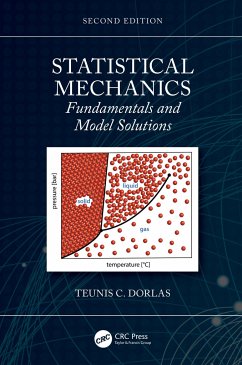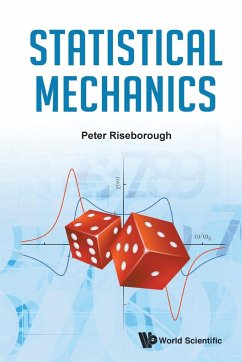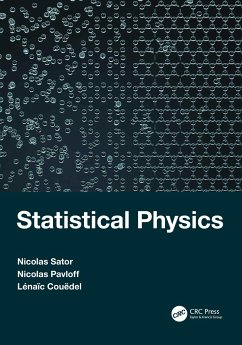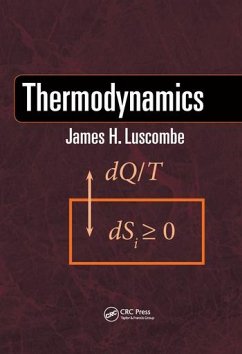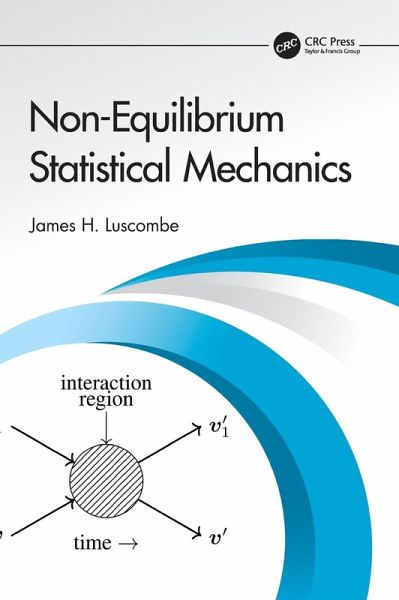
Non-Equilibrium Statistical Mechanics
Versandkostenfrei!
Versandfertig in 6-10 Tagen
104,99 €
inkl. MwSt.
Weitere Ausgaben:

PAYBACK Punkte
52 °P sammeln!
Statistical mechanics provides a framework for relating the properties of macroscopic systems (large collections of atoms, such as in a solid) to the microscopic properties of its parts. However, what happens when macroscopic systems are not in thermal equilibrium, where time is not only a relevant variable, but also essential?That is the province of nonequilibrium statistical mechanics - there are many ways for systems to be out of equilibrium! The subject is governed by fewer general principles than equilibrium statistical mechanics and consists of a number of different approaches for descri...
Statistical mechanics provides a framework for relating the properties of macroscopic systems (large collections of atoms, such as in a solid) to the microscopic properties of its parts. However, what happens when macroscopic systems are not in thermal equilibrium, where time is not only a relevant variable, but also essential?
That is the province of nonequilibrium statistical mechanics - there are many ways for systems to be out of equilibrium! The subject is governed by fewer general principles than equilibrium statistical mechanics and consists of a number of different approaches for describing nonequilibrium systems.
Financial markets are analyzed using methods of nonequilibrium statistical physics, such as the Fokker-Planck equation. Any system of sufficient complexity can be analyzed using the methods of nonequilibrium statistical mechanics. The Boltzmann equation is used frequently in the analysis of systems out of thermal equilibrium, from electron transport in semiconductors to modeling the early Universe following the Big Bang.
This book provides an accessible yet very thorough introduction to nonequilibrium statistical mechanics, building on the author's years of teaching experience. Covering a broad range of advanced, extension topics, it can be used to support advanced courses on statistical mechanics, or as a supplementary text for core courses in this field.
Key Features:
Features a clear, accessible writing style which enables the author to take a sophisticated approach to the subject, but in a way that is suitable for advanced undergraduate students and abovePresents foundations of probability theory and stochastic processes and treats principles and basic methods of kinetic theory and time correlation functionsAccompanied by separate volumes on thermodynamics and equilibrium statistical mechanics, which can be used in conjunction with this book
That is the province of nonequilibrium statistical mechanics - there are many ways for systems to be out of equilibrium! The subject is governed by fewer general principles than equilibrium statistical mechanics and consists of a number of different approaches for describing nonequilibrium systems.
Financial markets are analyzed using methods of nonequilibrium statistical physics, such as the Fokker-Planck equation. Any system of sufficient complexity can be analyzed using the methods of nonequilibrium statistical mechanics. The Boltzmann equation is used frequently in the analysis of systems out of thermal equilibrium, from electron transport in semiconductors to modeling the early Universe following the Big Bang.
This book provides an accessible yet very thorough introduction to nonequilibrium statistical mechanics, building on the author's years of teaching experience. Covering a broad range of advanced, extension topics, it can be used to support advanced courses on statistical mechanics, or as a supplementary text for core courses in this field.
Key Features:
Features a clear, accessible writing style which enables the author to take a sophisticated approach to the subject, but in a way that is suitable for advanced undergraduate students and abovePresents foundations of probability theory and stochastic processes and treats principles and basic methods of kinetic theory and time correlation functionsAccompanied by separate volumes on thermodynamics and equilibrium statistical mechanics, which can be used in conjunction with this book









